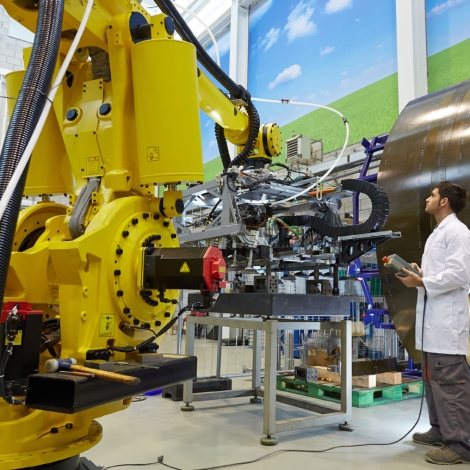The manufacturing industry is on the precipice of a radical transformation in the tools used in the trade. As the sector adopts “Industry 4.0” technologies, manufacturers will need a specialized and highly trained workforce. To provide guidance to the industry, academia and students, Engineering for Change has collaborated with our parent organization, the American Society of Mechanical Engineers (ASME) and Autodesk, Inc. on research from August 2021 through May 2022. The effort culminated in a whitepaper that identifies the future skills needed for mechanical engineering, manufacturing engineering, and CNC machinists over the next decade. As the executive summary explains:
Each role will evolve in its own way, but the study shows that the necessary new skills will consist of a purposeful combination of common skills (both hard and soft skills) that apply to all three positions, and interdisciplinary skills.
In the first phase of the three-phase research effort, E4C Fellows performed a literature review and research to set the tone for the following study. This foundational phase ensured the investigation and subsequent publication would fill gaps in what is known about emerging manufacturing technologies and how to prepare for work in a changing industry.
“We really had to ask ourselves and the field, what is next? What are the jobs of the future and the skills needed for those jobs? And most importantly, how and who do we train for the positions that don’t exist yet?” says Ashley Huderson, Ph.D., ASME’s director of engineering education and outreach, and a leader of the research team.
What are the jobs of the future and the skills needed for those jobs? And most importantly, how and who do we train for the positions that don’t exist yet? – Dr. Ashley Huderson, ASME
The research team reviewed existing literature from nearly 80 academic, government, and industry sources in the United States, United Kingdom, and European Union, interviewed 30 academics and industry leaders in the USA and UK, and surveyed more than 300 in the USA, UK, and Canada.
One of the recurring themes in the survey results is the trend toward greater efficiency, less waste, circular product life cycles and a generally increased momentum toward more sustainable manufacturing. Surveys found:
Productivity, profitability, and shorter product (development) cycles are challenging the industry with additional demands for more customizable and sustainable designs…
…In North America, 59% of 217 survey respondents said MEs [mechanical engineers] will need to focus on sustainability too, which takes into consideration the whole product lifecycle.
The report includes recommendations and adoption guidelines for educators and manufacturers on system-level approaches to reduce “time to talent” and achieve Industry 4.0 business outcomes. In addition, the report advocates for collaboration between government, industry, and academia in creating tomorrow’s manufacturing workforce.
59% of survey respondents said mechanical engineers will need to focus on sustainability, which takes into consideration the whole product lifecycle.
Emerging technologies including design for manufacturing (DfM), operations technology infrastructure, artificial intelligence/machine learning technologies such as generative design, integrated software platforms, and centralized data management will require new skills of mechanical and manufacturing engineers and machinists, the researchers found. The report recommends training and education to develop these “hard skills” for current and future employees. In addition, engineers and machinists will need strong “soft skills” including creative problem solving, communication, and collaboration, and interdisciplinary skills to close gaps for each job role.
“Our findings demonstrate a shared commitment between industry and academia to build a bright future for manufacturing,” says Simon Leigh, senior manager of design and manufacturing education strategy at Autodesk, who authored a blog post about the project. “Their overlapping interests in embracing emerging technologies, cross-role collaboration, and supplementing degrees with more hands-on learning gives us hope that future workers will be equipped with the skills that are direly needed for success in Industry 4.0.”
Download the whitepaper | The Future of Work: Education for Tomorrow’s Modern Workforce
E4C’s Fellows who took part in the research are part of our Fellowship program of students and early-career professionals in technical fields around the world. In collaboration with Autodesk Foundation and other private and governmental organizations worldwide, the fellowship trains more than 50 rising stars in fields orbiting the engineering global development sector. Alongside their education, E4C and our global expert network support the fellows as they research questions and design solutions that improve the quality of life in underserved communities.
Learn more about E4C’s Fellowship program.
Visit asme.org for a video overview of the future of manufacturing research (includes a link to download the full report).
This article is adapted from a press release. Read the full press release at asme.org.
